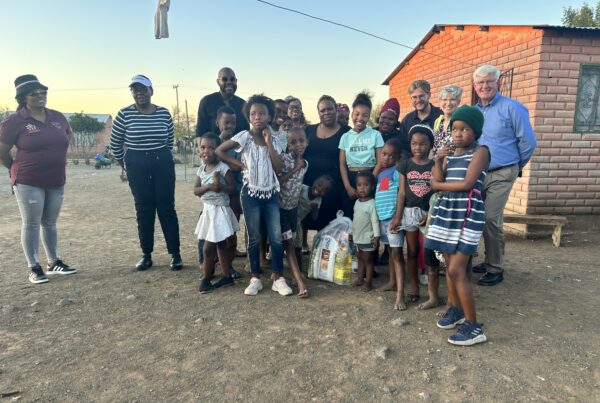A s a person of color, I have often wondered how I can trust the Bible because of how it has been used and manipulated throughout history to oppress people who look like me. But it continues to become clear to me that the Triune God we discover in Scripture isn’t the God that has been used to oppress and colonize people all over the world. In fact, all throughout Scripture, and specifically in the life and ministry of Jesus, we see God challenging the evil and injustices that have torn our world apart, that have allowed us to make enemies of one another.
In the Old Testament, God champions the dignity of the poor and marginalized, and in the New Testament, God breaks into human time and space as a brown-skinned, first-century Jewish man, a man who experienced oppression and chose to see, hear, and lift up those who had been forgotten. Jesus empowered those on the margins and showed us what it looks like to be a person who embodies justice and peacemaking in all of creation. The Holy Spirit is our guide, along with Jesus, helping us to more faithfully see and bear witness to God.
Related: How to Tune Into the Work of the Holy Spirit
Our world is full of all sorts of evil and injustices. It can feel overwhelming, and it begs a few questions: how do we live justly in an unjust world? What does it look like to be peacemakers in a world brimming with violence? How does Scripture infuse faith, hope, and love in our day?
I believe that Scripture has the power to come alive in us and transform us in beautiful ways. The Bible is a book of authoritative, sacred words, written in languages not our own (for most of us, at least), translated and interpreted in order that we may come to understand it more fully, and in doing so, apply its principles to our lives. Yet, Jesus is central to our Scripture and is therefore the lens with which we are called to interpret and live out its principles. We need to attend to Scripture faithfully, hopefully, and lovingly because I believe that it is a divine instrument that shapes and sanctifies us to become more like Jesus. It is only through our encounter with the relational, Triune God, both through the Word and the Word made flesh, that we are able to see all that God is revealing to us and what next faithful steps we are to take.

Ruth Langkamp
Ruth Langkamp serves the Reformed Church in America as next generation program specialist. You can connect with Ruth at rlangkamp@rca.org.



